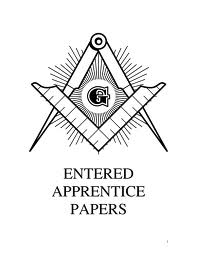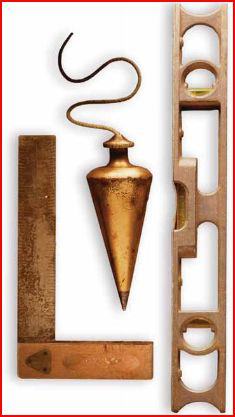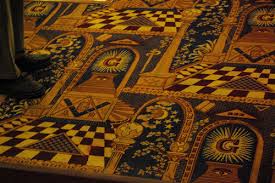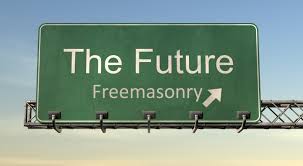Reply from Garry Bonner
Having read the latest article, how Freemasonry is missing the boat, I am moved to respond to it, because I see first of all the truth and sense in the understanding of what can be achieved by applying it , and indeed practicing it, not only to the benefit of Freemasonry, but indeed to our nation and country. The reason from my perspective is twofold.
As you know I am a mason however, I am original from Austria, where Masonry was founded in 1784, a time where, the Empress Maria Theresa had been married to Franz of Lothringen, who also was a mason, coming from area of Holland at the time and was the first place where Masonry was brought from London, England. The reason why this came about was that in Austria the was no male Heir to the Throne at the time and a Women, being a Habsburger, was able to function as a Empress.
Because of this, eventually, Masonry was allowed to be freely practiced, and for about 15 years. At this time many social achievement, where brought to bear, much to the many benefits of the general public, which are still available to this day. As this is another story to much to write at this time, but it relates to your present article. Masonry eventually was again forced into secrecy for many years missing the boat again. Well this is another story, but I think the relationship of my thoughts is established.
From Brother Junius
This essay makes a good point. The “trick.” if I may so term it, is to lead the nation in a broad and benevolent sense without, in fact, drifting into distinct political and social philosophies – socialism, capitalism, big government, small government, more taxes, less taxes and so on and so forth. This is not an easy thing to do, although it may be easy to say or suggest.
Secondly, I think something else was or is involved, and it is rather difficult to put into words. From about the late ‘sixties until, perhaps, the first five years of this century, we have dealt with a generation of men who were not, by-and-large, “joiners,” in the sense of entering clubs, church congregations, service groups and, of course, Freemasonry. It seemed as if that kind of interest had largely evaporated into thin air, so to speak.
Even as late as 1990 there was talk of large-scale “coccooning,” in our society, where people wrapped themselves in the private world of their increasingly spacious and luxurious homes, communicating externally by the Internet and importing entertainment, news and even conversations with others using all the new communications technology even then evolving. People ” went to meetings,” without ever leaving the house; they “travelled” all over the world and within the nation by high definition, 50″ flat screen televisions; they “went shopping and to the bank,” on the Internet and at places such as E-Bay; they “went to the movies,” with Netflix and movie channels – and so on and so forth. Many even “went to work” all or most of the time in the home-based study, or operated businesses out of the basement or the garage!
There is evidence of this in the decline of all kinds of groups other than Masons, such as the Loyal Order of Moose, the Oddfellows, Lions, Optimists and so on.
At the same time, the minority who were joiners were attracted to organizations, which, by their own nature, were not compatible with or were even hostile to Freemasonry.
I also approve of the mention of multiple causation: it was not only the economic and social equality of women, but partly; not only the rise of all kinds of exciting, absorbing and available alternate forms of free-time entertainment, but partly; not only increased physical mobility over distance, and more frequent migration from one area or town or city to another, but partly; not only a combination of religious fundamentalism and active evangelism on the one hand and the decline of so-called mainstream, older denominations on the other, but partly; not only fewer and fewer male children per married couple, but partly.
I do agree that trying to market Freemasonry as if it was some sort of commercial product, such as soap, a vacume cleaner, or even a car, was and is a mistake.
In a similar vein, the centralized organization of large and very public Masonic charities may well have done a great deal of good socially, and while not necessarily invalid in itself, had little or no effect on long-term, steady increase in membership.
There is some indication that the world may be about to turn yet again. Here, in Ontario, our Grand Lodge appears at least to have stopped the bleeding – last year, and the year before, we had a modest net increase ( 2% or so) in total membership for the first time in decades. Partly, this might be attributed to an active Friend to Friend program the lodges have been encouraged to use at the lodge level, involving personal friends of Masons, and often their wives or fiancees, dining together and having a presentation in the Lodge rooms about Freemasonry – a bit of its history, some of its ideals, and information about costs, time and so on.
However, having said that, I think something else is going on. One way to put it would be the old idea that success feeds on success, and one happy, inspired new member is likely to produce more, given a little time. Doing good ritual is an example. We have found that lodges consistently doing good ritual are lodges that the younger brethren are proud of, and are something they do not hesitate to talk about with their non-Masonic friends or colleagues at work. Younger members also appreciate the following:
1.Social events involving the ladies, however modestly run: BBQ, wine and cheese reception, restaurant dinner, dinner-dance evening, and so on.
2.Immediate opportunities to lead in the life of the lodge – Education, running the web site, acting as social leader, auditor, long range planning chairman, and so on
3.Getting started into the Chairs asap.
One other point: it is becoming increasingly evident to me at least that there are a lot of younger adult men out there who are looking for some group or organization that has a philosophic or even a spiritual dimension, but without a formal, restrictive theological system. If this be so, and I believe it is, then Freemasonry is poised to provide what is desired. In essence, ” we have an APP for that.”








You must log in to post a comment.